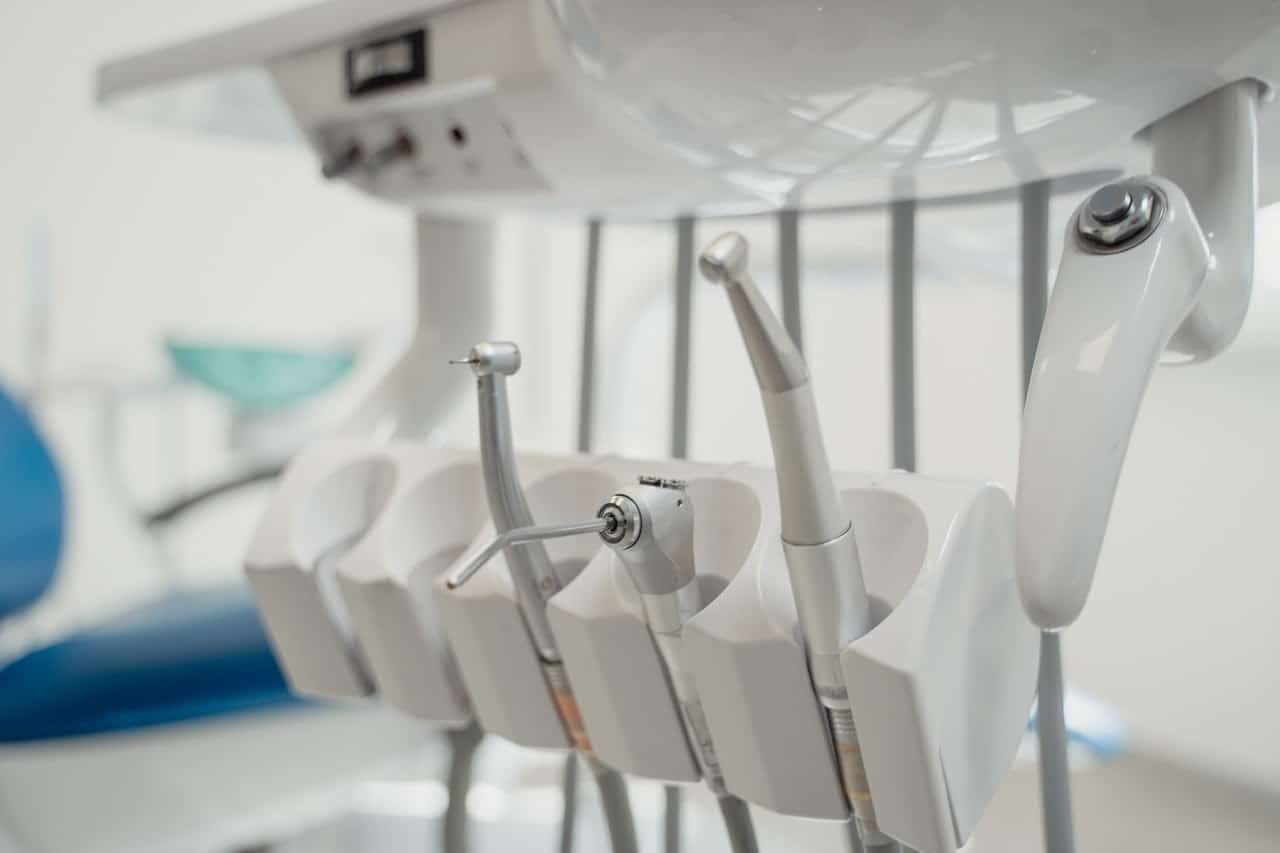Whether you’re a general dentist, an oral and maxillofacial surgeon, endodontist, or another type of dental professional, you know that dentistry is rewarding work. Therefore, disability insurance for a dentist is important.
Further than the education and experience alone, it also provides you another benefit:
The opportunity to earn a higher-than-average salary.
According to the U.S. Bureau of Labor Statistics, the average dentist salary in the U.S. is approximately $164,000 per year.
Oral and maxillofacial surgeons top the field as the highest income earners of all MD dentists, making an average of roughly $235,000 per year.
And when you earn a physician’s salary, you need to protect it with a disability insurance plan.
From how much it costs to picking the right insurer, here’s our guide to disability insurance for dentists and oral surgeons.
Table of Contents
Why Do Dentists Need Disability Insurance?
In addition to health insurance, malpractice insurance, and life insurance, disability income insurance is one of the most important types of insurance coverage a physician can have.
With disability income protection, you continue to earn a significant portion of your annual salary, even if you are injured, ill, or disabled in a way that prevents you from doing your job.
Disability insurance is the single best tool you have to protect your current assets and safeguard the future income you haven’t even earned yet.
It’s about more than just peace of mind — it’s a way to ensure that you’ll be able to:
- Pay your mortgage
- Stay on top of your bills
- Continue paying off student loan debt
- Continue to save for retirement
- Keep providing for your family
Without it, you could find yourself in a situation where you have no income at all.
This leaves you with no other option than to drain your savings accounts, sell off assets, or even dip into your retirement funds to meet your financial obligations.
Except for the monthly premium you’ll have to pay for coverage, there is no downside to having disability insurance. However, that’s a small price to pay for all the benefits that disability insurance provides.
Every dentist, oral surgeon, and other high-income earners can benefit from having the right disability insurance plan in place.
Related: Oral Surgeon Salaries: MD vs DDS MD vs OMFS
How Does Disability Insurance Work?
The process of getting disability insurance is an easy one.
The first step is to compare policies and insurers to find the right policy for you. (We’ll discuss that in more detail ahead).
The second step is to undergo a health screening. Before beginning the underwriting process, all insurers perform a health screening and review your medical history.
As part of the health screening process, you’ll need to disclose your medical history and any pre-existing conditions you may have.
The younger and healthier you are, the lower your premiums will be, so it’s always best to get disability insurance early on in your career.
In fact, you can save thousands of dollars in premiums over the course of your career if you get your policy when you’re in your twenties or thirties.
Once your policy is in place, you’ll need to make monthly premium payments.
Should you become ill or injured at any point while you maintain coverage, you can file a disability claim.
When your insurance company approves your claim, you’ll be able to start collecting benefits to compensate for your loss of income throughout the duration of your benefit period.
See also: How to File a Disability Insurance Claim for Physicians
Things to Keep in Mind When Buying Disability Insurance
Ready to commit to a disability insurance policy?
There are several different types of policies that exist, and there are specific terms that are important to understand when shopping for the right policy.
Know the Different Policy Types
There are two main categories of disability insurance policies:
Individual disability insurance and group disability insurance.
If you’re an employed dentist and your employer offers disability insurance as part of your benefits package, that’s a group policy.
With a group policy, you and every other group member (i.e., every other employee) have the same type of coverage and the same terms.
An individual disability insurance policy is always the preferred option. Anyone employed, or self-employed can get coverage with an individual policy; then customize the terms, benefit amount, and other policy details to meet their specific needs.
Even if your employer offers you a group policy, the best way to protect yourself is to take out an individual policy on your own.
There are also short-term disability insurance policies and long-term disability insurance policies.
Short-term policies typically provide coverage for a period of three to six months.
Long-term policies are the preferred option, as they can provide coverage and benefits for decades, depending on the benefit period you choose.
With an individual policy, you can select a benefit period that lasts all the way until your retirement age.
Related: Top Signs You Will Be Approved for Disability
Consider the Definition of Disability
When choosing a disability insurance policy, the most crucial thing to keep in mind is the definition of disability.
In order to be eligible to collect your disability benefits, you need to meet the definition as stated in your policy. The definition you choose will affect your monthly premiums and dictate how and when you can collect benefits.
The two main definitions of disability are any-occupation and own-occupation.
To collect disability benefits through a policy with the any-occupation definition of disability, you have to be so severely disabled that you cannot work in any occupation at all.
As a dentist who needs steady hands to work, even a slight hand tremor could prevent you from performing the day-to-day duties of your job. However, that hand tremor would not prevent you from working as a teacher, a salesperson, or an office manager.
With an any-occupation policy, any job you can work, no matter how little it pays, makes you ineligible for benefits.
The preferred definition of disability for dentists and MDs is the true own-occupation definition.
With true own-occupation coverage, you will be able to collect benefits if you suffer any illness or injury that prevents you from doing even part of your current job.
This definition is much easier to meet, as even a partial disability, such as nerve damage in one of your fingers, could make you eligible to receive benefits.
The own-occupation definition will increase your monthly premiums, but it is by far the better option. Without it, you’ll likely pay premiums for years and never be eligible to collect benefits.
True own-occupation policies make it much more likely that, if need be, you can collect the benefits you deserve.
Choose the Right Elimination Period
Every disability insurance policy has an elimination period, also referred to as the waiting period. This is the timeframe between the date of the injury or illness and the date at which you can start collecting monthly payouts.
Elimination periods range from 30 days to 720 days. The shorter the period, the sooner you can start collecting benefits, and the higher your monthly premium will be.
Decide What Benefit Period You Need
The benefit period is the timeframe in which you can collect your benefits. These range from two years all the way through to retirement age. The longer the benefit period, the more protection you’ll have and the more payouts you can collect.
Consider Adding Riders for Added Protection
When choosing a disability insurance policy, your insurance company will offer you the purchase option to add riders. These are additional terms that provide extra benefits.
There are many riders that you can choose from, but some of the most important ones are the:
- Cost of living adjustment
- Future increase option
- Automatic increase benefit
- Student loan rider
The cost of living adjustment rider, referred to as COLA, increases your benefit amount year after year to account for inflation.
With inflation, every dollar you make today will be worth less in the future. This rider ensures that your monthly benefit grows as inflation increases.
The future increase option, or FIO, allows you to increase your coverage amount in the future without having to undergo subsequent health evaluations. With this option, you can pay for more coverage as your income grows.
Furthermore, this rider is essential for younger dentists early on in their careers who stand to earn significantly more money as the years pass.
The automatic increase benefit, or AIB, is another way to increase your coverage as your salary increases. Unlike the FIO, which you’ll have to increase on your own, the AIB grows your benefit automatically as your salary increases.
The student loan rider is vital for younger physicians who are still paying off medical school debt. This rider gives you more coverage on top of your monthly benefit — coverage in the amount of your required monthly student loan payments.
How Much Does Disability Insurance Cost?
There is no one set amount that physicians pay for disability coverage, and that’s because there are a variety of factors that affect the cost:
- Coverage amount
- Elimination period
- Benefit period
- Current health status
- Gender
- Location
- Job title
- Additional riders
Moreover, most physicians spend between 2% and 5% of their gross income on insurance premiums, and most insurance policies offer coverage up to 60% of your monthly income.
For a policy that pays a monthly benefit amount of $10,000, you can expect a cost between $200 and $500 per month for premiums (a total of $2,400 to $6,000 per year).
For an MD oral surgeon, this is a small price to pay to know that you will have some income. Even if you cannot perform your job duties. Without this coverage, you could find yourself in a position where you have no income at all.
While most insurance companies cap the monthly benefit amount at about $17,000, dentists and oral surgeons need to protect as much of their income as possible and take the maximum coverage the insurance company will allow.
Learn more: How Much Does Disability Insurance Cost?
If You Own Your Practice, Offer Disability Insurance to Your Employees
If you own your practice or are a partner in one, you may want to consider offering a group disability insurance policy to your staff as part of their benefits package.
Therefore, Offering disability insurance for dentists, dental hygienists, and other essential members of your team is an added perk.
Individual disability insurance is always the best option for high-income earners.
Still, a group policy can serve as additional coverage and provide some protection for non-physician staff members who may not seek out a policy independently.
Which Insurance Companies Provide Disability Insurance?
There are thousands of insurance companies in the U.S., but there are six top options to choose from when you’re ready to buy disability insurance.
Why?
Because these six are the only providers that offer the true own-occupation definition of disability:
These insurance carriers have the best disability insurance policies for physicians and offer the best insurance benefits.
All six of these disability insurance companies offer various benefit and elimination periods, a wide range of riders, and allow you to tailor a policy to your specific needs.
Conclusion
Disability insurance is income protection for your future. Every physician, including dentists and oral surgeons, should protect themselves with this type of coverage.
For more information on choosing the policy that’s right for you, contact Physicians Thrive now.
Subscribe to our email newsletter for expert tips about finances, insurance, employment contracts, and more!










































